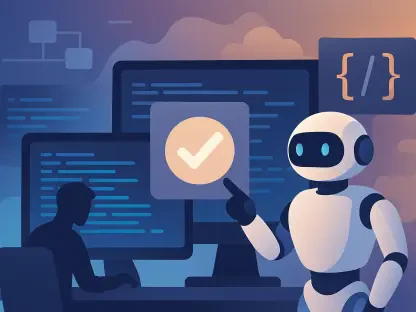In today’s digital landscape, enterprise SaaS technology plays an essential role in maintaining operational integrity and securing sensitive data. Vijay Raina, a seasoned expert in SaaS technology and software design, provides valuable insights into how organizations can foster a robust security culture. With his extensive experience, Vijay highlights the pivotal role of security engineers in integrating security measures across all facets of an organization.
How do you define a robust security culture within an organization?
A robust security culture is one where security is naturally embedded into the DNA of the organization. It’s about making sure that every individual, regardless of their role, understands and values the importance of protecting the organization’s resources and data. This means fostering an environment where security is prioritized, openly discussed, and continuously improved, with everyone feeling a sense of responsibility towards it.
What role do security engineers play in building and maintaining a strong security culture?
Security engineers are central to building a strong security culture because they act as both technical experts and culture ambassadors. They lead by implementing secure systems, but more importantly, they educate and inspire the rest of the organization. By clearly communicating security needs in a way that highlights their critical nature and aligns with the company’s goals, they help disseminate a security-first mindset beyond their immediate team.
Can you provide examples of how security engineers can lead by example in promoting a security-first mentality?
Security engineers lead by example through everyday actions, like implementing secure coding practices and prioritizing security in their workflows. This not only showcases the importance of security but sets a benchmark for others to follow. By maintaining high standards in teamwork and communication, they also emphasize that security is intrinsic to every aspect of their work, reinforcing its significance to others in the organization.
What strategies can security engineers use to break down silos and encourage security as an organization-wide initiative?
Breaking down silos requires active collaboration across various teams. Security engineers can foster this by integrating security into agile and DevOps workflows, which naturally involves multiple disciplines. By establishing open lines of communication with other departments and explaining the relevance of security to their specific functions, security engineers can elevate security as a collective mission.
How can security engineers promote security awareness across an organization effectively?
To promote security awareness effectively, security engineers should develop tailored training programs that address the unique needs of different teams, such as developers or managers. By using relatable scenarios and practical examples, they can demonstrate the implications of security lapses and best practices. Additionally, creating ongoing dialogues about security helps to demystify the topic and encourages active participation from everyone.
Why is a continuous feedback loop important for a strong security culture, and how can security engineers facilitate this?
A continuous feedback loop is vital because it allows an organization to adapt and respond to new threats and challenges. Security engineers can facilitate this by setting up metrics to measure the effectiveness of security strategies and actively seeking feedback from teams. Regularly reviewing these insights helps fine-tune security practices, ensuring they remain effective and relevant.
How can data and metrics be leveraged to reinforce security initiatives within an organization?
Data and metrics serve as tangible evidence of the effectiveness of security initiatives. By tracking specific KPIs, like the number of vulnerabilities caught early in development or the speed of incident resolution, security engineers can demonstrate improvements and justify the adoption of new security measures. Sharing these results can foster appreciation and further buy-in from the entire organization.
What does creating a shared responsibility for security entail, and why is it important?
Creating a shared responsibility for security means ensuring that everyone in the organization understands and participates in safeguarding it. This approach is important because it multiplies the eyes and ears looking out for potential threats. By fostering open communication and collaboration, it becomes second nature for teams to consider security in every decision they make, ensuring risks are mitigated early in the development process.
What challenges might an organization face in building and nurturing a culture of security?
Some challenges include resistance to change, a lack of resources, or insufficient understanding of security’s importance. Overcoming these requires persistent education, tailored training programs, and leadership buy-in. Security must be seen as a fundamental part of the business strategy, not an afterthought.
In your opinion, what are the long-term benefits of establishing a strong security culture for an organization?
Establishing a strong security culture can lead to reduced risk of breaches, which in turn protects customer trust and preserves financial stability. Moreover, an ingrained security mindset ensures the organization is resilient, adaptable, and better equipped to handle evolving threats, ultimately securing its longevity and success in the marketplace.









